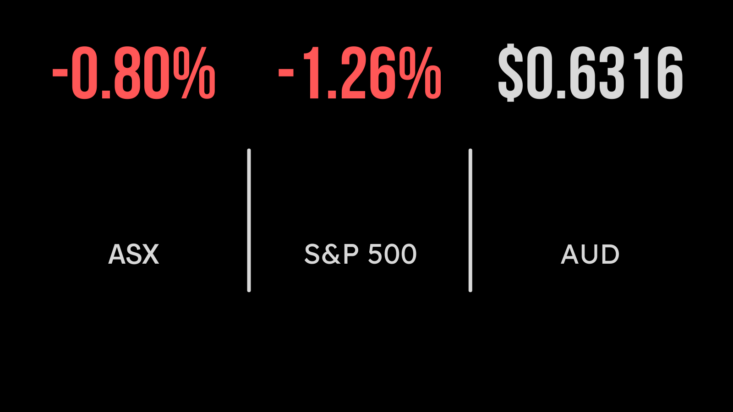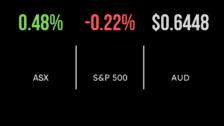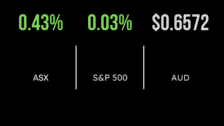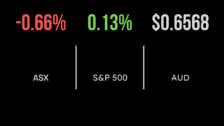All Ords (ASX:XAO) drops on Middle East escalation, energy outperforms, Liontown slumps
The local share market posted a negative end to the week, with both the S&P/ASX200 and All Ordinaries falling 1.2 per cent on Friday, dragging the benchmarks 2.1 per cent lower for the week. The only sector posting a gain on Friday was energy, buoyed by expectations of an oil price above US$100 per barrel and boosting Santos (ASX:STO), which gained 1.9 per cent. The materials sector slumped 1.7 per cent with lithium miner Liontown (ASX:LTR) a significant detractor falling 31 per cent after announcing the results of an urgent capital raising. Elsewhere, vertically integrated fund manager and advice business Insignia (ASX:IFL) fell by close to 13 per cent after CEO Renato Mota announced his resignation, ending 20 years at the company. Hotels and cinema owner Event Hospitality announced an upgrade to earnings expectations, as the QT operator sees stronger domestic travel. Across the week, energy was once again the only gainer, up 2.7 per cent, with the tech sector selling off by more than 5 per cent.
Markets shift lower as yields move over 5 per cent, AMEX down despite earnings beat
It was a rough finish to the week for each of the major US benchmarks, with the Nasdaq falling 1.5, the S&P500 1.3 and the Dow Jones 0.9 per cent as the threat of higher oil prices and another key government bond term saw yields spike above 5 per cent. While higher oil prices resulting from the conflict in Gaza helped boost the Dow Jones in comparison to the tech-focused alternatives, this stands out as a major drag on short-term economic growth. The pressure comes as Federal Reserve members continue to play hard ball on rate hikes and rhetoric at least. The likes of Amazon (NYSE:AMZN) and Microsoft (NYSE:MSFT) are set to report next week, but this week saw both Hewlett Packard (NYSE:HPE) and American Express (NYSE:AXP) both falling by more than 5 per cent on market updates. In the case of HP, the weakness was due to expectations of slowing rate of sales growth as IT investment reduces, while American Express actually outperformed, boosting profit by close to 30 per cent. Revenue grew 10 per cent, however, investors are focused on the growing risk of credit card arrears and potential impairments. Across the week the Dow Jones fell just 1.6 per cent, the S&P500 2.4 and the Nasdaq 3.2 per cent.
Gold hits record, Bank of Japan intervenes again, more yields over 5 per cent
Higher interest rates and better returns on term deposits and cash were expected to hit the price of gold in the short-to-medium term, but the conflict in the Middle East has seen a rush back to the safe haven asset. In addition to the search for security, investors shifting capital back to the US and out of perceived higher risk markets have boosted the USD, sending the AUD lower and with it pushing gold to a record higher of AUD$3,150 per ounce. This once again reiterates the need for truly diversified portfolios. As the rhetoric continues to grow, bond yields have continued to spike around the world with 10 year yields now exceeding 5 per cent along with longer maturities and thus placing ever greater pressure on the economy. The handbrake is clearly coming and the higher yields go, the likely higher urgency for rate hikes in 2024. The Bank of Japan has once again been forced to intervene in the government bond market, stepping in to buy additional bonds in an effort to keep the key yield low, and thus supportive of the financial markets and economy.











